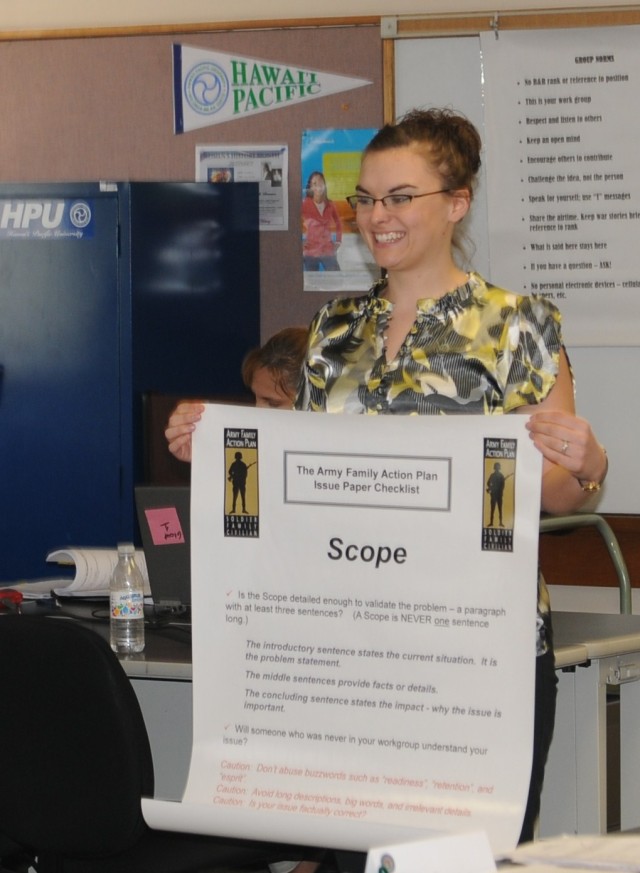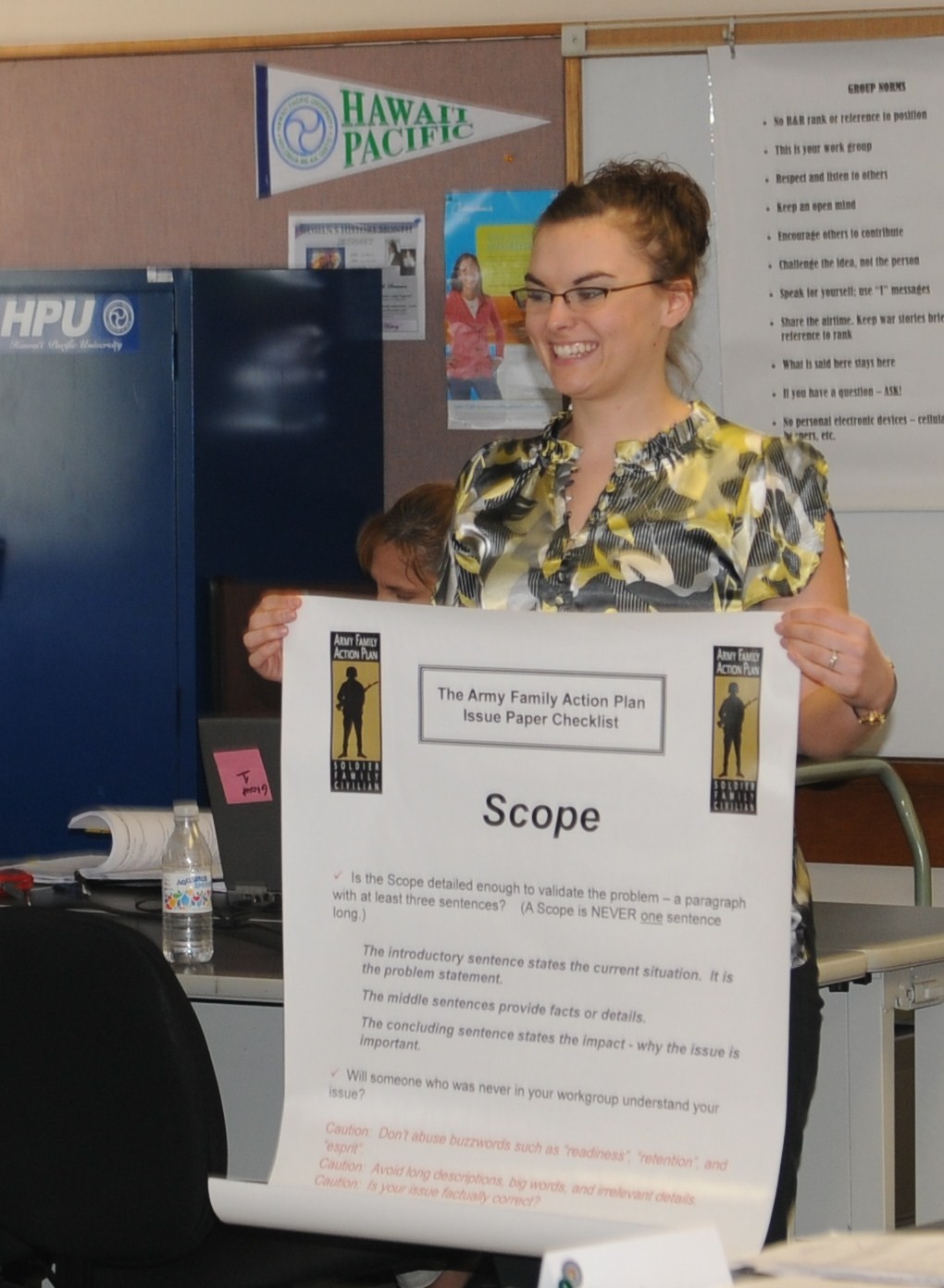
SCHOFIELD BARRACKS, Hawaii--Delegates from the U.S. Army, Pacific Family gathered at Schofield Barracks May 3-6 to discuss issues directly impacting USARPAC Soldiers and their Families. The USARPAC Army Family Action Plan conference hosted representatives from Hawaii, Japan and Alaska who spoke on behalf of Family members of enlisted Soldiers and officers, Wounded Warriors, surviving spouses, retirees, the National Guard and Reserve, and Department of Defense civilians.
The goal of the USARPAC AFAP conference was to define and discuss issues that affect Soldiers in the Pacific area, and to recommend solutions to Army leadership.
During the opening ceremony of the conference, Lt. Gen. Benjamin R. Mixon, commander of the U.S. Army, Pacific, addressed the delegates. He thanked them for their support, and addressed the importance of AFAP.
"What you're about here is really important business," he said. "We want to make sure that you get the full opportunity to express your views and provide your insight because all of you in the room are the ones who live this day in and day out."
Mixon cited past AFAP conference successes, including the implementation of the standardized Army-wide pregnancy program for Soldiers, military spouse preference across all federal agencies, and distribution of the Army G.I. Bill benefits to Family members.
With the hope that the 2010 USARPAC AFAP conference could continue to build on those successes, the delegates met for four days to discuss issues that affect the USARPAC Army Family.
At the end of the four days, the delegates presented five issues to Maj. Gen. Bernard Champoux, commander of the 25th Infantry Division, who presided over the May 6 closing ceremony.
The first issue concerned the OCONUS Cost of Living Allowance Unique criteria. The delegates suggested that the Army authorize all OCONUS areas as COLA Unique locations, since all locations outside of the continental U.S. present unique financial challenges to Soldiers and their Families.
The second issue aimed to improve the lives of single Soldiers living in barracks. Most Soldiers who live in barracks receive a meal card to eat at dining facilities on base rather than receiving a stipend for food like Soldiers who do not live in the barracks. To give those Soldiers more options of where and what to eat without sacrificing pay, the delegates advised that the Army institute a pre-paid swipe card system at the dining facility allowing Soldiers to receive money back for any meals they did not eat at there.
The third issue dealt with the varying cost of dental care from state-to-state. The delegates maintained that for families living in high-cost states, beneficiaries receive fewer services than those living in less costly states. The panel recommended that the Army increase the maximum annual benefit cap to adjust for high dental care costs in those states.
The fourth issue seeks to ensure that initial entry Soldiers with dependents have enough time to complete the additional processes needed for overseas assignment to allow Soldiers to move to their assignment location with their families. Soldiers who are not able to arrive at their duty assignment with their dependents are likely to assume more emotional and financial stress, said Mike Bozeman, spokesperson for the work group who presented the issue.
The last issue presented to Champoux was the need for Department of Defense Education Activity schools in Hawaii. The Army Family Covenant requires "excellence in education" for military children, something which schools in Hawaii do not provide. The panel of delegates recommended that the Army establish DoDEA schools to meet the needs of all military children in Hawaii.
The five issues briefed to Champoux at the end of the conference will be presented at the Department of the Army AFAP conference in Washington, D.C. in early 2011.

Social Sharing